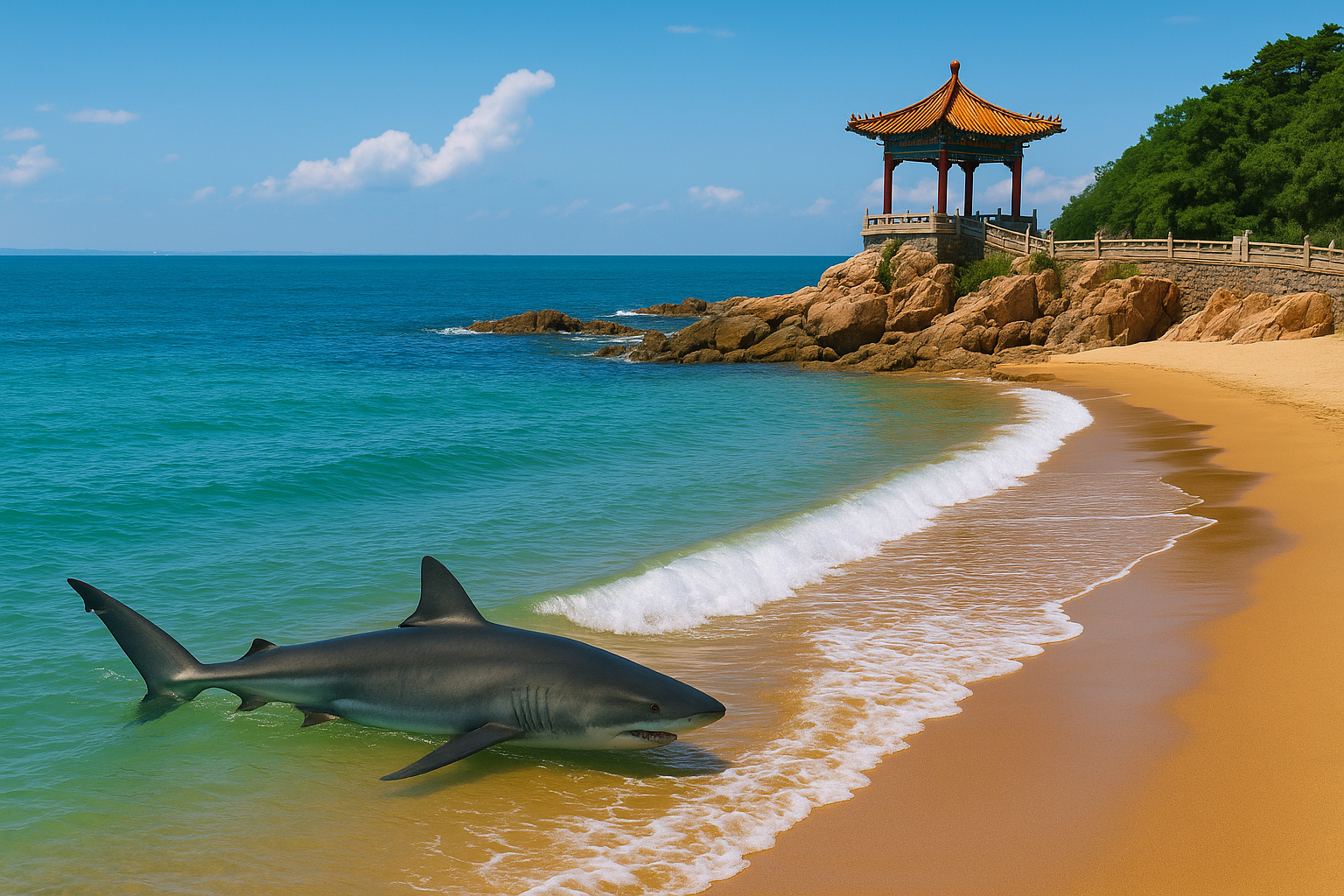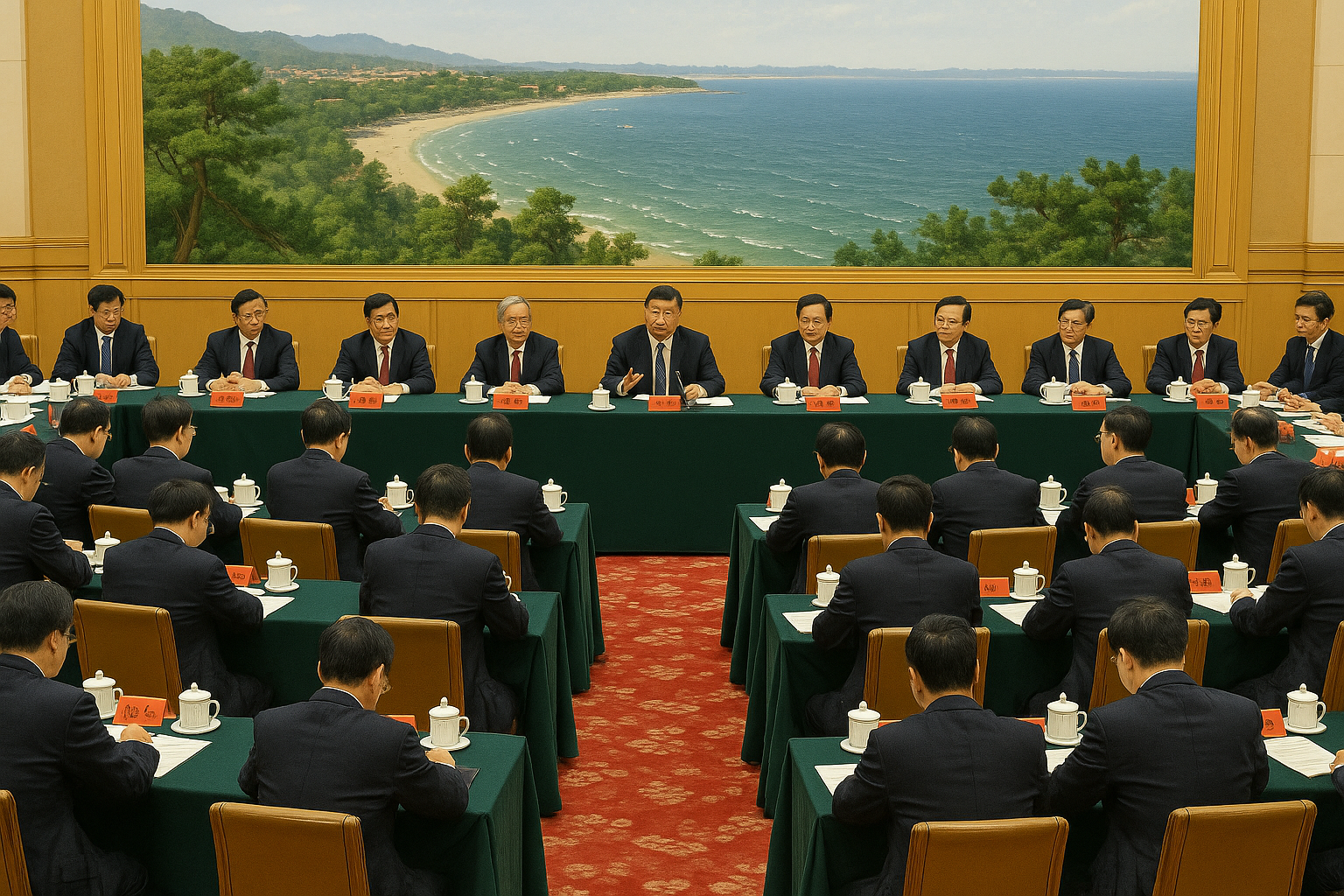
~ Behind Closed Doors in Beidaihe: Plotting China’s Future Amid Factional Currents ~
By Tom Clifford in Beijing
Azure waters lapping golden beaches, top-class accommodation, great food but the coastal town of Beidaihe, north of Beijing, where the party leadership retreats to escape the capital’s heat every August, is no holiday destination for them.
This is where the future of China is plotted, discussed and formulated. It is no place to let your guard down or not be entirely in control of your brief. Sharks, adding a hint of menace, are known to swim nearby.

Despite its importance, the annual meeting receives no publicity, no TV cameras will be present and certainly no one will be writing daily blogs.
The Beidaihe gathering, in Qinhuangdao, Hebei province, is shrouded in mystery and it receives no official media coverage.
The venue, where it is not unusual to see one faction played off against the other, as indicated by seating arrangements, access to the leadership, even food served, is steeped in history.
In the 19th century Qing dynasty officials used its relatively temperate climate to entertain foreign diplomats.
Mao Zedong, as with many things Qing, kept up the tradition and since the early fifties, transferred decision-making from Beijing to the resort. Escaping the capital’s heat but playing faction politics was Mao’s agenda and it must be said, a source of enjoyment.
Policies, that will be rubber stamped by the compliant and obedient National People’s Congress later, are ironed out.
Key decisions that helped define the party’s rule were agreed at the venue; Mao’s Great Leap Forward (1958-62) and Deng Xiaoping’s crackdown on crime 1983-86, to name just two, were given official approval at the resort.
There have been interruptions, notably during the Cultural Revolution (1966-76) After resuming in 1984 the meetings were once again suspended by Hu Jintao in 2003 in favour of a more formal decision-making process. Xi Jinping reinvigorated the Beidaihe process in 2012, upon taking the presidency. It is rumoured that he is less than enamoured by the discussions that take place at the resort. But he continues to play along as he believes it provides a good gauge of the party’s mood, something he would not get in the more reticent and restrained, though more brutal, surroundings of the capital’s Zhongnanhei leadership compound.
Beidehai serves one other important purpose. It offers a forum for experienced but retired officials to offer their advice and the benefit of their experience, something that is difficult to do in the heated and suspicious political atmosphere of Beijing. They feel more confident that their views will get a hearing in a calmer setting where political point scoring, while still relevant, is not all important as it would be 300 miles south in the capital.
So, what is the focus for the resort meeting? It may be held in secret but a betting man would expect to see some returns by backing the following topics. Trump, Taiwan, Trade, the three Ts followed by the four Es…Economy, Environment, Education and Employment.
Unless we are in for an almighty shock and change of direction it looks like the Trump issue will see a ”steady as she goes” approach. Taiwan will witness a continuation of ”keep up the pressure”. Trade will be dominated by the quest to establish new markets.
The economy poses a huge challenge. It is not growing at the official 5 per cent, though the AI sector is outperforming expectations. Youth unemployment has the potential to be a powder keg.
The environment has seen a breath of fresh air, literally. It is no longer a cough-inducing measure to breathe in Beijing.
However, agricultural land loss through pollutants remains a major issue. Education policies must result in more rural children in the classroom. Employment. Get rural and suburban youth, the 18-24 range, working to avoid a volatile situation. There is a sense that time is taking on a greater urgency.

The party’s leadership fully appreciates that the sharks darting through the water off the coast may be menacing but they are also hugely symbolic.
###
Previous article by Tom Clifford:
It’s not Taiwan or tariffs that worry Beijing
###
ADVERTISEMENT











